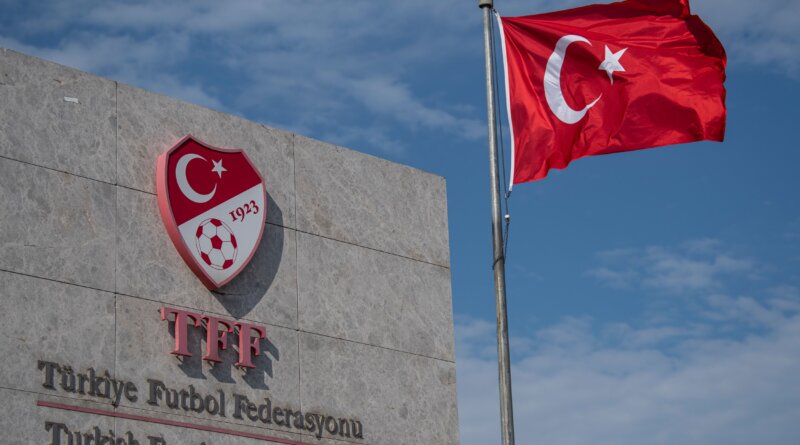Turkish Football Betting Scandal Shakes the Nation
Turkish football betting scandal has erupted, plunging the country’s leagues into unprecedented turmoil as the Turkish Football Federation (TFF) confirmed that over 1,000 players and 149 referees are being investigated for involvement in illegal gambling activities. This crisis, the largest of its kind in Turkish football history, has led to emergency suspensions, fixture delays, and even arrests, sending shockwaves through every level of the sport.
Scope of the Turkish Football Betting Scandal
The Turkish Football Federation announced that 1,024 professional footballers from across various divisions have been referred to the Professional Football Disciplinary Committee (PFDK) due to alleged participation in football betting. Notably, 27 of these players are from the Super Lig, including individuals associated with major clubs such as Galatasaray, Besiktas, and Trabzonspor. The scandal has directly impacted the Super Lig title race, with every team in the top 10 except Fenerbahce affected by these allegations.
The breadth of the investigation is staggering. In addition to the Super Lig, 77 players from the 1. Lig, 282 from the 2. Lig, and 629 from the 3. Lig have been drawn into the inquiry. Furthermore, nine players outside the league structure are also under scrutiny. As a result of the widespread suspensions, the TFF has been forced to temporarily halt matches in the 2. Lig and 3. Lig for two weeks, giving clubs the opportunity to rebuild their depleted squads.
Referee Corruption Deepens Football Betting Scandal
What started as an internal review into referee conduct quickly escalated the Turkish football betting scandal. TFF president Ibrahim Hacıosmanoğlu revealed that 371 of Turkey’s 571 active referees held betting accounts, with 152 found to be actively betting on football matches. The scale of the betting is shocking—one referee reportedly placed over 18,000 bets, while dozens of others placed more than 1,000 wagers each, sometimes even on matches they officiated.
Hacıosmanoğlu described the findings as “a moral crisis in Turkish football,” stressing that the problem is not merely administrative but profoundly ethical. He labeled the disciplinary referrals as a necessary preventive measure to restore credibility within Turkish football.
Arrests and Legal Fallout Intensify the Scandal
The scandal intensified when an Istanbul court ordered the arrest of Eyupspor president Murat Ozkaya and seven other individuals on charges related to influencing match outcomes. Authorities are investigating possible charges of match-fixing, corruption, and involvement in illegal gambling networks. This signals that the Turkish football betting scandal could widen further as the investigation continues.
Emergency Measures and Suspension of Leagues
With so many players and referees sidelined, the TFF has enacted immediate structural changes. Fixtures in the 2. Lig and 3. Lig have been postponed for two weeks, while matches in the Super Lig and 1. Lig are set to continue as planned. To support clubs in filling gaps in their squads, negotiations are underway with FIFA to introduce an additional 15-day domestic transfer window, separate from the upcoming winter transfer period.
The TFF stated, “Our goal is to protect the integrity of the game and rebuild public trust. The disciplinary and legal processes are being carried out meticulously in cooperation with judicial authorities.” Still, the uncertainty has shaken the confidence of clubs, fans, and sponsors alike.
Impact on Clubs and Public Trust
While some clubs, including Besiktas, have publicly supported their implicated players, the overall stability of Turkish football is at risk. The Turkish football betting scandal threatens league sponsorships, match attendance, and the financial health of clubs across all divisions. The investigation may lead to severe suspensions, substantial fines, or forced squad rebuilds mid-season.
UEFA and FIFA Monitor Turkish Football Betting Scandal
Both UEFA and FIFA are closely monitoring the situation but have refrained from direct intervention. The TFF maintains that there is currently “no evidence of widespread organized match-fixing,” though ongoing arrests and the deepening links between betting networks suggest the situation could worsen.
The scandal is a pivotal moment for Turkish football, with the outcome likely to shape the sport’s governance and credibility for years to come. The TFF faces the daunting task of managing squad shortages, reconfiguring league schedules, cooperating with judicial investigations, and implementing urgent institutional reforms.
Opinion: A Test of Integrity Turkish Football Must Pass
The Turkish football betting scandal is more than a legal crisis—it is a test of the game’s very foundations. Restoring public trust will require not just disciplinary action but a complete cultural shift towards transparency and integrity. For Turkish football to emerge stronger, authorities must ensure fair process, support affected clubs, and prioritize the values that make the sport beloved nationwide. The coming months will reveal whether Turkish football can cleanse itself and rebuild, or whether the cracks exposed by this scandal will deepen further. For ongoing updates and comprehensive coverage, visit our homepage for more news.
Your global gateway to nonstop football coverage:
News Goal
Share this content:

